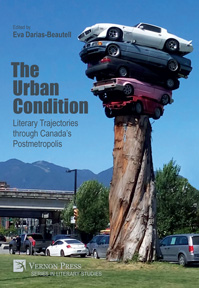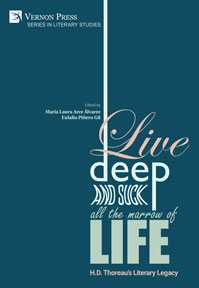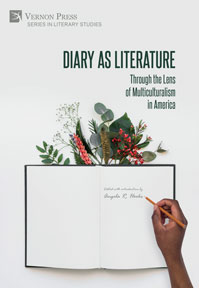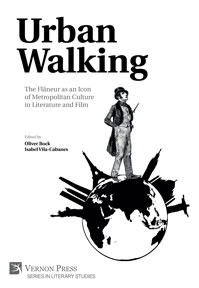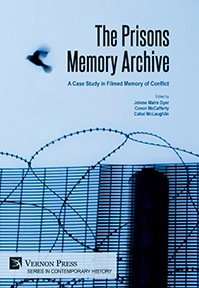Voicing Memories, Unearthing Identities: Studies in the Twenty-First-Century Literatures of Eastern and East-Central Europe
Aleksandra Konarzewska, Anna Nakai (Eds.)
by Aleksandra Konarzewska (University of Tübingen, Germany), Anna Nakai (Tokyo University of Foreign Studies, Japan), Jennifer Döring (University of Tübingen,Germany), Elisa-Maria Hiemer (Herder Institute for Historical Research on East Central Europe, Germany), Melinda Harlov-Csortán (Apor Vilmos Catholic College in Vác, Hungary), Monika Glosowitz (University of Silesia, Poland), Alena Heinritz (University of Innsbruck, Austria), Philine Bickhardt (University of Zurich, Switzerland), Karolina Kolpak (Yale University), Justyna Tabaszewska (Institute of Literary Research of the Polish Academy of Sciences, Poland), Antonina Puchkovskaia (King’s College London), Kseniia Tereshchenko (Independent Researcher and Translator), Valentin Peschanskyi (University of Münster, Germany), Olena Saikovska (Odesa I. I., Mechnikov National University, Ukraine), Olha Tkachenko (Polish Academy of Sciences, Poland), Maria Ivanytska (Taras Shevchenko National University of Kyiv, Ukraine)
Purchase this book
(click here to change currency)
This anthology analyzes literature from Poland, Hungary, Russia, Czechia, Georgia, Serbia, Estonia, and Ukraine from the point of view of how memories (whether they be memories of World War II, of the Ukrainian Holodomor, or of life under communism) influence how nations construct their twenty-first-century identities. [...]
[Extract from book review appearing on 'The Polish Review' 69.3 (2024), p. 166. Published online on October 1st, 2024. https://doi.org/10.5406/23300841.69.3.20]
In the region known as Eastern and East-Central Europe, the framework provided by memory studies became highly valuable for understanding the overload of interpretations and conflicting perspectives on events during the twentieth century. The trauma of two world wars, the development of collective consciousness according to national and ethnic categories, stories of the trampled lands and lives of people, and resistance to the rule of authoritarian and totalitarian terrors—these trajectories left complex layers of identities to unfold. The following volume addresses the issue of identity as a pivot in studies of memory and literature. In this context, it addresses the question of cultural negotiation as it took shape between memory and literature, history and literature, and memory and history, with the help of contemporary authors and their works. The authors take the literature of countries such as Estonia, Poland, Serbia, Ukraine, and Russia as the point of departure, and explain its significance in terms of geographical, theoretical, and thematic perspectives.
Acknowledgements
Introduction: Literature, Memory, and Identity in the Twenty-First-Century Eastern and East-Central Europe
Aleksandra Konarzewska
University of Tübingen, Germany
Anna Nakai
Tokyo University of Foreign Studies, Japan
PART I. CREATING IDENTITY
Chapter 1 Future in Memory Studies and Functions of Alternative Histories
Justyna Tabaszewska
Institute of Literary Research of the Polish Academy of Sciences, Poland
Chapter 2 Lies and Memories in Contemporary Russian Literature (Lyudmila Ulitskaya, Mikhail Shishkin, Andrei Gelasimov)
Jennifer Döring
University of Tübingen, Germany
Chapter 3 Embodied Memory: Post-Communist Scenes of Writing in Novels by Kéthévane Davrichewy, Kateřina Tučková, and Lyudmila Ulitskaya
Alena Heinritz
University of Innsbruck, Austria
PART II. CONFLICTING IDENTITY
Chapter 4 Poland’s False Symmetry: How Szczepan Twardoch’s Jakub Szapiro Knocks Out the Myth of Polish-Jewish Conflict
Karolina Kołpak
Yale University, USA
Chapter 5 Why Didn’t You Tell? Identifying Silencing as a Memory Event of the Previous Generation About the Cold War Period (Péter György, György Száraz Miklós, Márta Mészáros)
Melinda Harlov-Csortán
Apor Vilmos Catholic College in Vác, Hungary
Chapter 6 Shaping the Future by Reconstructing the Past. Polish-Jewish Autobiographical Writings beyond the Holocaust (Agata Tuszyńska, Piotr Paziński, Mikołaj Grynberg)
Elisa-Maria Hiemer
Herder Institute for Historical Research on East Central Europe, Germany
PART III. PRESERVING IDENTITY
Chapter 7 The Literary Representability of the Shoah in the Novel Gec i Majer from David Albahari: Language between Documentation and Imagination
Philine Bickhardt
University of Zurich, Switzerland
Chapter 8 Studying Estonian Gulag Literature: Approaches and Obstacles
Kseniia Tereshchenko
Independent Researcher and Translator
Antonina Puchkovskaia
King’s College London, UK
Chapter 9 In Search of Upper Silesian Women. Counterhistories in Contemporary Silesian Literature
Monika Glosowitz
University of Silesia, Poland
INSTEAD OF AN AFTERWORD: FOUR UKRAINIAN ESSAYS ON LITERATURE AND MEMORY
Essay 1: Are Pushkin and Bulgakov to Blame for Russia’s War against Ukraine?
Olha Tkachenko
Polish Academy of Sciences, Poland
Essay 2: Memories of Famine in Ukraine. Vasyl Barka’s Novel The Yellow Prince (1962)
Maria Ivanytska
Taras Shevchenko National University of Kyiv, Ukraine
Essay 3: Remembering a Bright Soviet Past. Scatology and Necrophilia as Metaphors of a Diseased Memory in Oleksandr Irvanets’s Rivne/Rovno (2001)
Valentin Peschanskyi
University of Münster, Germany
Essay 4: Amadoka (2020) by Sofia Andrukhovych as an Archeological Novel about Memory
Olena Saikovska
Odesa I. I. Mechnikov National University, Ukraine
Author Information
Index of Names
Index of Terms
Aleksandra Konarzewska, Ph.D., is an Assistant Professor in the Faculty of Humanities at the University of Tübingen, Germany. She graduated from the University of Warsaw and the University of Tübingen. Her research focuses on literature of the nineteenth and twentieth centuries, contemporary non-fiction literature, and the philosophy and history of ideas in Central and Eastern Europe.
Anna Nakai is a part-time lecturer at the Tokyo University of Foreign Studies, Japan, and a researcher at its Institute for Global Area Studies. Her doctoral research focuses on the contemporary intellectual history of Central Europe, especially late socialist Czechoslovakia and Poland.
Memory Studies, Literary Theory, Digital Humanities, Contemporary Literature, Lie, Alternative History, Embodied Memory, Autobiographic Writing, Holocaust, Silencing, Cold War, Second World War, Eastern Europe, War, Central-Eastern Europe
See also
Bibliographic Information
Book Title
Voicing Memories, Unearthing Identities: Studies in the Twenty-First-Century Literatures of Eastern and East-Central Europe
ISBN
978-1-64889-624-8
Edition
1st
Number of pages
262
Physical size
236mm x 160mm

![Voicing Memories, Unearthing Identities: Studies in the Twenty-First-Century Literatures of Eastern and East-Central Europe [Hardback]](/file/20307/5be747b999095ee65df30207c342fe35/1681388863.jpg)

